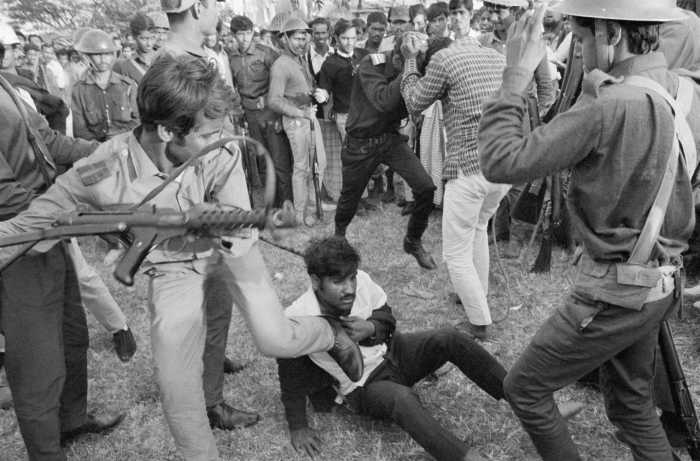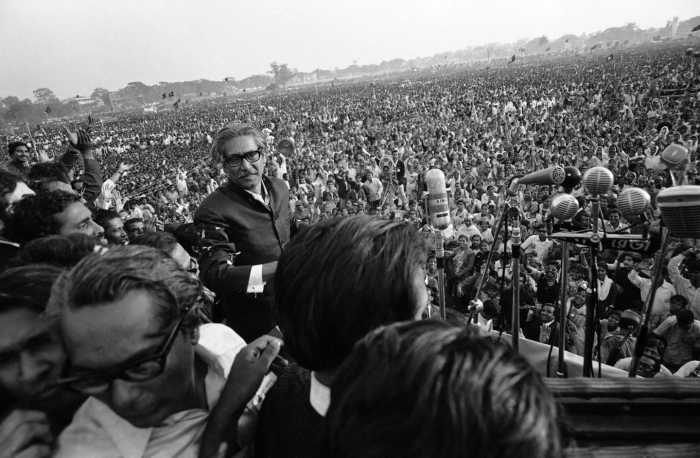Published 09:52 IST, March 24th 2024
Bangladesh to witness 52nd Genocide Remembrance Day Amidst Calls of accountability for Pakistan
Operation Searchlight, initiated by the Pakistani Army on March 25, 1971, led to mass killings, rapes, and destruction in East Pakistan.
- World News
- 4 min read
Dhaka: Bangladesh solemnly observes Genocide Remembrance Day on March 25, a sombre occasion marked by reflection and remembrance of the atrocities committed during the Bangladesh Liberation War in 1971. The day serves as a poignant reminder of the horrors unleashed by the Pakistan military during Operation Searchlight, a military crackdown initiated by the Pakistani Army to suppress the Bengali nationalist movement in East Pakistan, now Bangladesh.
Operation Searchlight, launched on the night of March 25, 1971, was ostensibly intended to quell dissent and maintain order in East Pakistan. However, what ensued was a barbaric campaign of violence and terror, characterized by mass killings, rapes, and widespread destruction perpetrated by Pakistani forces. The operation, purportedly aimed at political and military elements, quickly escalated into indiscriminate violence against civilians, leaving behind a trail of devastation and despair.
Pakistan's Accountability: Facing Criticism
Pakistan's role in the atrocities committed during Operation Searchlight remains a subject of international condemnation and criticism. The Pakistani Army's flagrant disregard for human rights and its systematic targeting of civilians sparked outrage and demand for accountability. The international community must not turn a blind eye to Pakistan's culpability in the genocide perpetrated against the Bengali people. In 2017, the government of Bangladesh formally recognized March 25 as Genocide Day, reflecting on the horrific events of that fateful night in 1971.

Bangladesh's parliament underscored the importance of international recognition of this day to commemorate the genocide perpetrated by the Pakistani forces. The nation also stands in solidarity with the United Nations' designation of December 9 as the International Day of Commemoration and Dignity of the Victims of the Crime of Genocide. "It is Parliament's opinion that March 25 be declared Genocide Day to commemorate the genocide conducted by the atrocious Pakistani forces on the black night of March 25, 1971, and necessary steps are taken to have the Day recognized internationally,” Bangladesh’s parliament notes in a report by the Ministry of Foreign Affairs.
Historical context: Seeds of Conflict
The seeds of conflict in the region were sown long before Operation Searchlight. The Lahore Resolution of 1940, adopted by the Muslim League, laid the groundwork for the creation of Pakistan as an independent state. However, the resolution's vague language regarding "independent states" fueled speculation and debate.
East and West Pakistan, geographically separated by India, shared little in common beyond religion. The political and cultural disparities between the two regions fueled demands for autonomy and sovereignty among the Bengali population. Denial of civil and political rights, including the right to language, exacerbated tensions, leading to mass movements and protests.

The demand to recognize Bengali as the national language of Bangladesh was a pivotal moment in the nation's history. Despite Urdu being declared the state language of both East and West Pakistan, Bengali remained the mother tongue of the majority of the population. The resistance against this imposition culminated in the Language Movement of 1952, marked by the sacrifice of students who were killed during protests.
Today, UNESCO recognizes February 21 as International Mother Language Day, commemorating the sacrifices made during the Language Movement. Eventually, in 1956, Pakistan conceded to popular demand and recognized Bengali as a national language, acknowledging the cultural identity and aspirations of the Bengali people.
As Bangladesh observes Genocide Remembrance Day, the nation mourns the countless lives lost and the profound suffering endured by its people during the brutal crackdown of Operation Searchlight. The day serves as a solemn tribute to the memory of the victims and a reminder of the enduring legacy of pain and trauma inflicted upon the Bengali populace.
Updated 09:54 IST, March 24th 2024